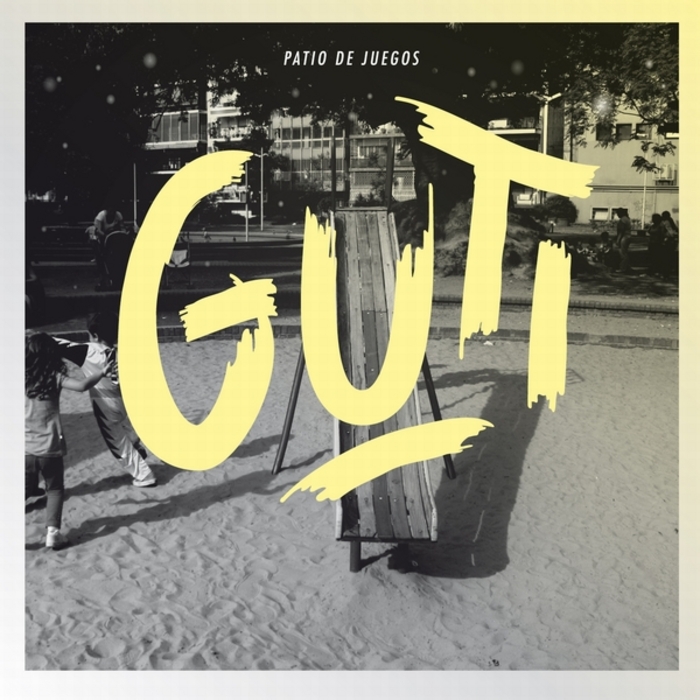In this day and age, when gig-announcing MySpace profiles and Blogspot manifestos are never more than a Google search away, it’s rare to encounter an artist you’ve never heard of, who doesn’t come from a familiar “scene” or easily identifiable label, who creates exactly zero expectations before your listening experience. Rarer still does such an artist craft such a confident, unique, and inviting debut album as Patio de Juegos.
I knew nothing about Argentinian DJ Guti before listening to his first full-length, besides the fact that he’s, well, an Argentinian DJ. I don’t even know his name. But I do know that he’s become something of a fixture on the Buenos Aires club scene; what’s more, he’s been making music since at least 2007, building up an impressive back catalog of split 12-inches and file downloads. Still, his work is new to my American ears, and categorizing Patio as something like “tribal minimal tech house” is insultingly inadequate.
Indeed, from the moment we hear Vince Guaraldi-esque piano keys saunter over a midtempo bongo beat in the album’s opening seconds, it’s clear that Patio de Juegos (which translates to “Playground”) is just as whimsical as its name implies. It’s not long before we reach the title track, which dives right into a snappy bass and rhythm combo that recalls Daft Punk’s “Around the World” with a wandering reed organ and a touch of cumbia’s primitivism for good measure. “My Whole Thing” takes a page from Burial’s playbook, employing a soulful vocal sample as more of a haunting textural element than as a foreground melody line. Later, “Miraloo” plays with a zealous spoken-word sample constantly running into itself, while “Lucio El Anarquista” marries vaguely industrial loops with a guest vocal turn from Argentinian saxophonist Daniel Melingo, who imbues the upbeat track with a gravelly, cool, and detached presence that does Lou Reed better than Reed himself as of late.
The most impressive thing about Patio de Juegos, however, is the fact that it’s about 70 minutes long yet contains nary a minute of filler. The second half of the album doesn’t include a track shorter than four minutes, but it never drags or staggers; it’s clear that Guti’s live DJing experience informs the patience and sense of pacing that make this album work. Some tech house artists operate by stretching aural coils of tension over the span of however many minutes, while others seek to create smoother and more hypnotic musical ramblings. On Patio de Juegos, Guti manages both, and it’s how he can go from a track like “Ohsu,” with its clipped and almost disconcerting snatches of computer-filtered speech, to one like “Wanna Be,” which brings back the album intro’s romantic piano work and puts it to work in the service of Latin-inflected house, with occasional distant chanting that makes the 7-minute epic sound kind of like a block party happening outside your bedroom window.
Of course, you might discern different moods and connotations from this music — there are enough different elements at play here to allow for myriad interpretations. It’s to Guti’s credit that he can expand his sound in so many different directions without stretching himself too thin. And remember, this is all from his debut LP. Who knows what he’ll be capable of when he’s had time to stretch his studio legs a little more. For now though, Patio de Juegos is more than mere diversion; it is deep and swirling yet never demanding, a spicy Bloody Mary that nonetheless refreshes.

